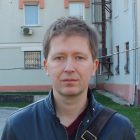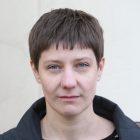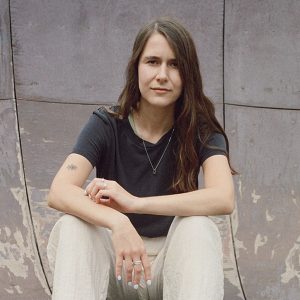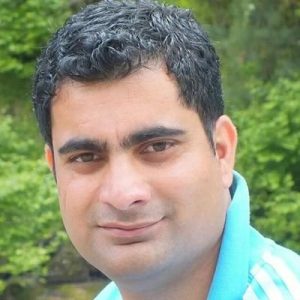Index relies entirely on the support of donors and readers to do its work.
Help us keep amplifying censored voices today.
The summer issue of Index magazine concentrated its efforts on the developing situation between Russia and Ukraine and consequential effects around Europe and the world.
We decided to give voice to journalists, artists and dissidents who chose to respond to this ruthless war. At the same time, we didn’t forget other attacks on freedoms that haven’t been covered around the globe as much as they should.[/vc_column_text][vc_custom_heading text=”Up front”][vc_column_text]Joining Ukraine’s battle for freedom, by Jemimah Steinfeld: We must stand with the bold and brave against Putin.
The Index: A global tour of free expression, departing from the poll booth and arriving at the journalists reporting under Taliban rule.[/vc_column_text][vc_custom_heading text=”Features”][vc_column_text]Fifty years of pride and prejudice, by Peter Tatchell: Following the rise and
corporate fall of London’s march for LGBT rights, will grassroots voices rise again?
India’s meaty issue, by Aishwarya Jagani: When a burger comes with a side of oppression.
Cartoon, by Ben Jennings: Art imitates life, caveman style.
My three years of hell in an Uyghur ‘re-education’ camp, by Gulbahar Hatiwaj and Rahima Mahmut: As the world stays silent, hear the truth from inside China’s brutal concentration camps.
One step ahead of the game, by Chen Dan: Media criticism of the Chinese government is all part of the power play.
Welcome to the kingdom of impunity, by Michael Deibert: The landscape is dangerous for journalists in Haiti. Murders and kidnappings are a daily risk.
Politically corrected? By Issa Sikiti da Silva: The banned words the Kenyan
government doesn’t want to hear in this election year.[/vc_column_text][vc_custom_heading text=”Special report: The battle for Ukraine”][vc_column_text]Losing battle for truth in Russian lecture halls, by Ilya Matveev: The war has put a new strain on academic freedom. A Russian lecturer laments his lost classroom.
Don’t be afraid to say two plus two is four, by Mark Frary and Alla Gutnikova: As a convicted student journalist speaks out for freedom, do Russian dissidents once again face the gulag?
Emotional baggage, by Slavenka Drakulic: How it feels to pack up a life in Ukraine and become a refugee.
Back to the future, by Martin Bright: The world has been turned
upside down for Ukrainian reporters, and this is their new landscape.
On not being shot, by John Sweeney: Amidst the Kremlin-wrought
wreckage, do we need a new era of journalism?
Russia’s trojan horse moves closer to Europe, by Viktória Serdult: In Hungary, Putin’s right-hand man and Europe’s right-wing firebrand wins again.
Turkey’s newfound russophilia, by Kaya Genç: Putinism is seeping into Turkey, and it spells trouble for future freedoms.
Divided by age and a tv screen, by Hanna Komar: How do you make sure your
family see the truth when they’re blinded by Kremlin propaganda? A Belarus activist speaks out.
Culture in the cross hairs, by Andrey Kurkov: Decades after Soviet rule, Ukrainian culture is once again under threat, as are the lives behind the creative expression.
Bordering on media control, by Kseniya Tarasevich: False information about
Ukraine finds fertile breeding ground in Poland.
Treat tragedies of the Ukraine war with dignity, by Olesya Khromeychuk: The grieving hearts left behind when death becomes news fodder.
Worth a gamble, by Jemimah Steinfeld: When telling the truth is a crime, turn to a criminal spam operation.[/vc_column_text][vc_custom_heading text=”Comment”][vc_column_text]
Cancel Putin, not culture, by Maria Sorenson: Banning Russian artists assumes
that they are all collaborators of the Russian state and goes against artistic freedoms.
Beware the ‘civilisation’ battle, by Emily Couch: Why Europe must reject
anti-Asian racism to fully stand with Ukraine.
The silent minority, by Ruth Smeeth: A tribute to those whose work never saw the light of day.[/vc_column_text][vc_custom_heading text=”Culture”][vc_column_text]‘The light is no longer the light it used to be’, by Lyuba Yakimchuk: The poet on children being indoctrinated and the elderly disorientated in Russia-occupied Ukraine.
A cassandra worth heeding, by Dominic Cavendish: Murdered Russian journalist
Anna Politkovskaya, whose dispatches from Chechnya should be put in the spotlight.
Poetic injustice, by Stephen Komarnyckyj: History is repeating itself
on the pages penned by Ukrainian writers.
Banking on Russia’s poetic spirit, by Maria Bloshteyn and Yulia Fridman: A “piggy bank” of Russian poetry is fighting on the right side of Putin’s war.
Metaphors and madness, by Eduardo Halfon: In Guatemala, truth is best expressed through fiction.
Metal shows its mettle, by Guilherme Osinski: A heavy metal band labelled
“satanic” by Iran is free from prison and taking back the microphone.
America’s coming crucible, by Jo-Ann Mort: Women in the USA might soon be in the dark about their own bodies.
Join Index on Censorship and Pushkin House for a night discussing freedom of expression in Russia as part of the launch of the latest issue of Index on Censorship magazine.
The 2022 summer magazine looks at how the Russian invasion in Ukraine impacts freedoms within Ukraine and across Europe, Turkey and Russia. While the pages are filled with stories of brave and brilliant people speaking up and out, many write on the growing challenges for freedom of expression. This is especially the case for those living in Russia under Vladimir Putin. This will be the topic of our discussion for the launch.
Featuring a panel of people with direct experience and knowledge of Russia under Putin, the evening will address how much freedom there is in Russia right now, particularly in relation to media freedom and protest.
The panel will include Russian investigative journalists Andrei Soldatov and Irina Borogan, as well as Ben Noble, Associate Professor in Russian Politics at University College London. The conversation will be chaired by Index on Censorship magazine Editor-In-Chief Jemimah Steinfeld. The event will also include a reading of a passage written by the late Russian journalist Anna Politkovskaya, who was murdered in Moscow in 2006.
A wine reception will follow.
This event is free, but seats are limited. Advanced booking is essential. Register for your ticket here.
MEET THE SPEAKERS
 Andrei Soldatov is a Russian investigative journalist, co-founder, and editor of Agentura.ru, a watchdog of the Russian secret services’ activities.
Andrei Soldatov is a Russian investigative journalist, co-founder, and editor of Agentura.ru, a watchdog of the Russian secret services’ activities.
He is co-author with Irina Borogan of The New Nobility. The Restoration of Russia’s Security State and the Enduring Legacy of the KGB (PublicAffairs, 2010), The Red Web: The Struggle Between Russia’s Digital Dictators and the New Online Revolutionaries (PublicAffairs, 2015) and The Compatriots: The Brutal and Chaotic History of Russia’s Exiles, Émigrés, and Agents Abroad (PublicAffairs, 2019).
 Irina Borogan is a Russian investigative journalist, co-founder and deputy editor of Agentura.ru, a watchdog of the Russian secret services’ activities. She chronicled the Kremlin’s campaign to gain control of civil society and strengthen the government’s police services under the pretext of fighting extremism.
Irina Borogan is a Russian investigative journalist, co-founder and deputy editor of Agentura.ru, a watchdog of the Russian secret services’ activities. She chronicled the Kremlin’s campaign to gain control of civil society and strengthen the government’s police services under the pretext of fighting extremism.
She is co-author with Andrei Soldatov of The New Nobility. The Restoration of Russia’s Security State and the Enduring Legacy of the KGB (PublicAffairs, 2010), The Red Web: The Struggle Between Russia’s Digital Dictators and the New Online Revolutionaries (PublicAffairs, 2015) and The Compatriots: The Brutal and Chaotic History of Russia’s Exiles, Émigrés, and Agents Abroad (PublicAffairs, 2019).
 Dr Ben Noble is Associate Professor of Russian Politics at University College London (UCL SSEES) and an Associate Fellow of Chatham House. His research focuses on legislative politics, authoritarianism, and Russian domestic politics, with awards from The Leverhulme Trust, the Political Studies Association, and the British Academy. His co-authored book Navalny: Putin’s Nemesis, Russia’s Future? (Hurst and Oxford University Press, 2021) has so far been translated into eight languages, was selected by the Financial Times as one of the best books on politics in 2021, and has been shortlisted for the Pushkin House Book Prize in 2022. Ben frequently provides commentary and analysis on Russian politics for academic, policy, media, and general audiences.
Dr Ben Noble is Associate Professor of Russian Politics at University College London (UCL SSEES) and an Associate Fellow of Chatham House. His research focuses on legislative politics, authoritarianism, and Russian domestic politics, with awards from The Leverhulme Trust, the Political Studies Association, and the British Academy. His co-authored book Navalny: Putin’s Nemesis, Russia’s Future? (Hurst and Oxford University Press, 2021) has so far been translated into eight languages, was selected by the Financial Times as one of the best books on politics in 2021, and has been shortlisted for the Pushkin House Book Prize in 2022. Ben frequently provides commentary and analysis on Russian politics for academic, policy, media, and general audiences.
 Jemimah Steinfeld is the editor-in-chief at Index on Censorship. Prior to Index she lived in China. She is the author of the book Little Emperors and Material Girls: Sex and Youth in Modern China, and has written for a variety of publications, including The Guardian, The Telegraph, The Independent, CNN, New Statesman and openDemocracy. She can be found tweeting @JFSteinfeld.
Jemimah Steinfeld is the editor-in-chief at Index on Censorship. Prior to Index she lived in China. She is the author of the book Little Emperors and Material Girls: Sex and Youth in Modern China, and has written for a variety of publications, including The Guardian, The Telegraph, The Independent, CNN, New Statesman and openDemocracy. She can be found tweeting @JFSteinfeld.
Index on Censorship has today (Monday, 16 May) announced the nominees for the Freedom of Expression Awards, celebrating those courageous artists, journalists and campaigners who risk arrest, assault and imprisonment through their championing of freedom of expression.
Awards will be presented in three categories: the arts, campaigning, and journalism, as well as a Trustees Award. This year’s panel of judges consists of multi-award-winning artist Alison Jackson, artist and writer Coco Fusco, journalist Ben Preston, and Chair of the Index Board of Trustees Sir Trevor Phillips.
The shortlisted candidates for the Arts award are:
The shortlisted candidates for the Campaigning award are:
The shortlisted candidates for the Journalism award are:
Several of our nominees have experienced imprisonment for their activism; Xueqin is in detention in China, Sonya has been imprisoned and is currently in exile in Turkey, Hamlet is in exile in Europe following incarceration, Malcolm has previously been imprisoned. Despite the threats and the risks, these brave individuals continue to fight against censorship.
Index on Censorship CEO Ruth Smeeth said:
“The Index on Censorship Freedom of Expression Awards are a hugely important moment in our year. While the reality of the risks many nominees face is sobering, the awards are a moment of celebration, showcasing as they do some of the incredible people standing up for freedom of expression and the democratic rights and values across the globe.
“It is our privilege to bring their stories to light and to celebrate their achievements despite great adversity. Their art, campaigning and written words are a living, breathing testimony to the ability of creativity to make real change – even in the teeth of unimaginable adversity.”
ENDS
NOTES TO EDITORS
The winners will be announced at the Index on Censorship Freedom of Expression awards in London on Thursday 27 October.
Broadcast and written interviews, along with images and media content, available upon request.
For all media enquiries contact Luke Holland / [email protected] / 07447 008098
 Sonya Groysman is a Russian journalist and podcaster. Despite being labelled as a ‘foreign agent’ by Russian authorities she has continued to report on human rights issues and censorship in Russia.
Sonya Groysman is a Russian journalist and podcaster. Despite being labelled as a ‘foreign agent’ by Russian authorities she has continued to report on human rights issues and censorship in Russia. Bilal Hussain is a journalist based in Srinagar in Kashmir. He focuses his reporting on freedom of expression issues.
Bilal Hussain is a journalist based in Srinagar in Kashmir. He focuses his reporting on freedom of expression issues. Huang Xueqin is an activist and journalist who has worked with several domestic Chinese media outlets. She has reported extensively on the MeToo movement in China.
Huang Xueqin is an activist and journalist who has worked with several domestic Chinese media outlets. She has reported extensively on the MeToo movement in China.